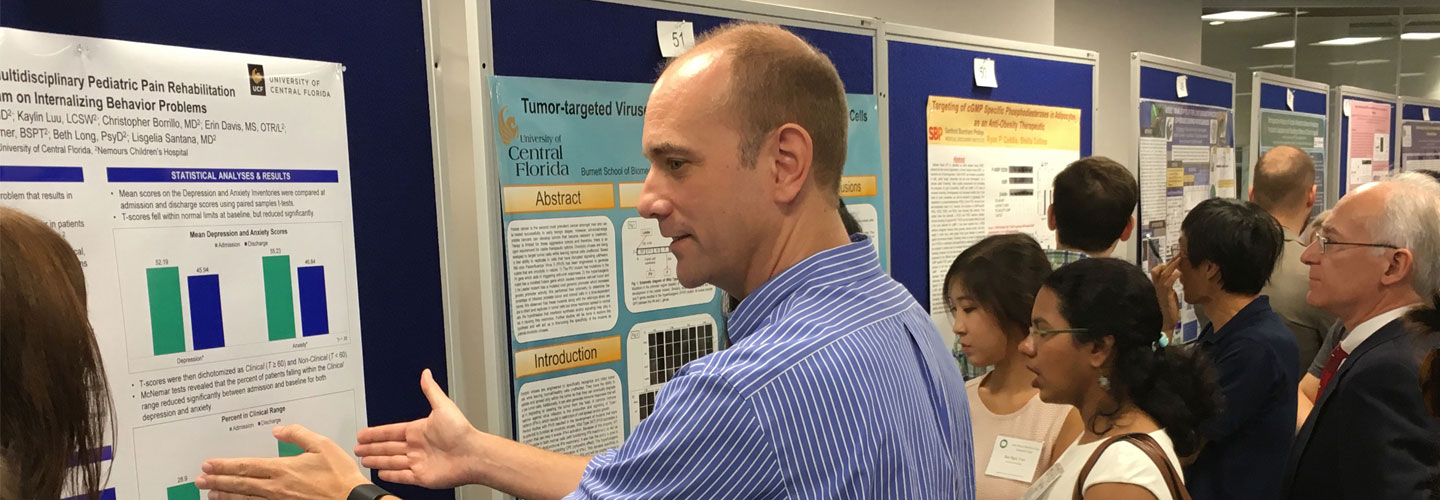Scientists, physicians and trainees recently gathered at the first Lake Nona Research Day to share the latest research and technologies that are contributing to innovations in health care.. The event brought together senior and junior practitioners from Medical City’s five institutions.
“As we planned the symposium, we decided to focus on the trainees, who then became the glue that brought everything together,” said Philip Wood, D.V.M., PhD, director of academic affairs at Sanford Burnham Prebys Medical Discovery Institute (SBP) at Lake Nona and chair of the Medical City Research Council. “Their enthusiasm to share their science is evident in the 120 research posters that highlight the research emerging from SBP, the University of Central Florida, the University of Florida, Nemours Children’s Hospital, and the Orlando VA Medical Center.” The symposium was presented by the Lake Nona Institute.
Disease modeling by high-tech simulation and data mining were themes of featured talks. Lawrence Lesko, PhD, professor, Center for Pharmacometrics at UF, described using biosimulation to project drug performance in virtual patients. “What we do is like a flight simulator—we evaluate drug impact before testing in patients, frequently focusing on drug-drug interactions,” said Lesko.
Similarly, Daniel Kelly, MD, scientific director of SBP at Lake Nona, spoke about his lab’s work to study the changes in mitochondria function that are seen in heart failure patients and to simulate disease in a dish using human induced pluripotent stem cell-derived cardiomyocytes. “We need to become mitochondrial doctors to treat heart failure,” said Kelly. “These models will help us discover therapeutic approaches tailored to the etiology of a subset of heart failure cases that could be given earlier than current treatments.”
Steven Kern, PhD, deputy director, Quantitative Sciences at the Bill and Melinda Gates Foundation, delivered the keynote on using data to decide how to invest $1 billion in precision public health projects on a global scale. “We build drug-disease models to determine how to prevent epidemics like malaria. In our Healthy Birth and Growth Project, we model real-world data to determine the right interventions, in the right dosage, to get the right response—to get children to the healthiest stage at 100 days of life,” explained Kern.
David Odahowski, president and CEO of the Edyth Bush Charitable Foundation, which sponsored the symposium, concluded the program by observing that innovation often comes from the intersection of disciplines. “I think what we learned today is that collaboration is the true measure of success and that is especially true here in Medical City.”
